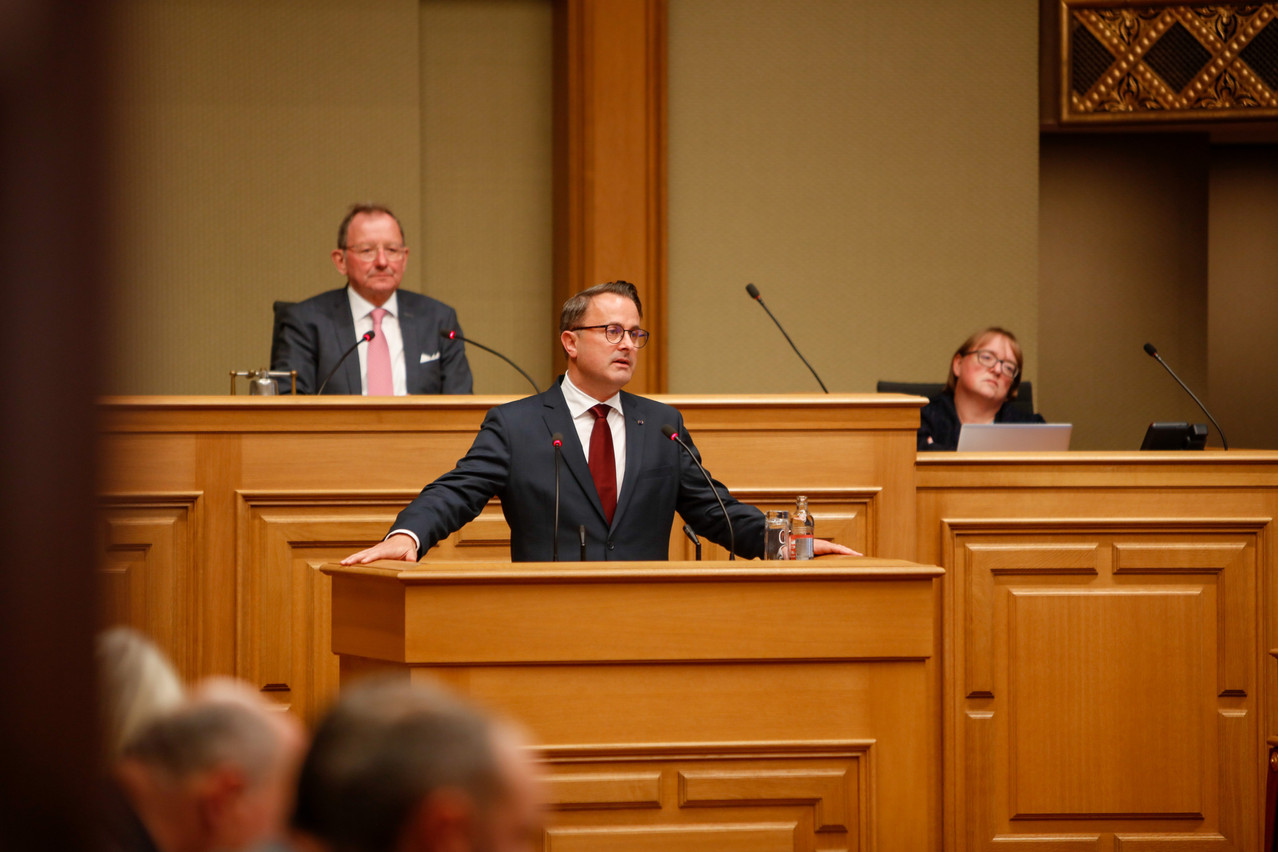The Christian democrat opposition in December submitted a motion in parliament calling on the government to finally implement a code of conduct for members of the government that complies with recommendations made by the Group of States against Corruption (Greco), an anti-corruption watchdog within the Council of Europe.
Lawmakers had agreed to shelve a vote on the motion as Bettel (DP) said work was already underway. However, with no update submitted, the Chamber of Deputies on Thursday finally adopted the document.
“The government wants to do this,” the premier said. “You’re preaching to the choir,” he told Léon Gloden (CSV) who had introduced the motion in parliament. The first ethics code was introduced under Bettel in 2014, but it so far includes no lobby register for the government or senior officials.
As part of a review in 2018, Greco had criticised the grand duchy’s lax rules, issuing a set of recommendations. Luxembourg in response set up a working group, submitting reform proposals to Greco for feedback before adopting them.
For example, the government proposed that ministers and advisers must log interviews with lobbyists and that this list will be publicly available on its website. But the plans, “suffer from certain shortcomings that will prevent them from being as comprehensive and useful as they should be,” Greco responded.
Meetings initiated by government officials aren’t covered in the draft rules and Greco said more details on the topics discussed should be included. It also criticised a narrow definition of lobbyists that, “excludes a whole host of third parties who may also seek to influence the decisions of ministers or advisers,” and a lack of rules on how ministers engage with interest groups outside of official interviews.
Rules for former ministers
Elsewhere, the government suggested that a national ethics committee must be notified of any new private sector activity by a former minister for two years and can submit recommendations on how to avoid conflicts of interest.
But Greco would like the ethics committee to get more powers. “The ethics committee should be able to recommend, in the most obvious cases of conflict of interest, that the former senior official not be allowed to engage in the intended activity,” the group said in a review of the proposals.
It also urged the government to make public all opinions issued by the ethics council. Currently, opinions must only made public if the committee reports an ethics code violation. This lack of public oversight leaves too much room for the government to decide whether an opinion should be published or what it does with the council’s advice.
Under the current version of the , there is no official cooling off period. However, for two years, former members of government cannot use insider information they gained during their time in office to advise their new employer and clients or to gain advantage for their own business venture.
The ethics committee charged with ensuring adherence to the code in 2020 had warned that this rule is nearly impossible to enforce, recommending that former ministers be banned from taking up a position in the private sector linked to their government portfolios for two years.
The from November 2020 was followed up by a European Commission rule of law review, which also highlighted shortcomings in Luxembourg’s rules. “Room for improvement remains as regards the regulation of conflicts of interest and revolving doors,” it said in .
